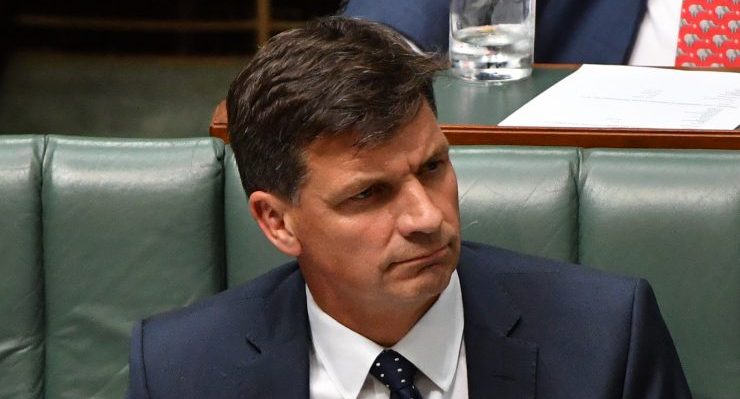
On the inside
Let’s start with an uncharacteristic piece of good — or at least not-obviously-bad — news which you might have missed. Australia’s incarceration rate has dropped for the first time in seven years. Which is great, although no one’s entirely sure why it’s happened.
That’s according to the Australian Bureau of Statistics. The ABS’ Prisoners In Australia data reveals that the national incarceration rate is down by 1%, with every state and territory except Tasmania and Victoria seeing a small but significant drop.
The Mandarin points out that this decrease is in keeping with global trends in both crime and imprisonment, and speculates that the drop might reflect the absence of strong “tough on crime” campaigns in recent elections — but the result is unlikely to be thanks to any one thing.
But don’t let that happiness wash over you too quickly. The wildly disproportionate incarceration rate for Indigenous people (especially women) is still a national disgrace. Also, a third of the people currently incarcerated are awaiting trial; it’s a damning indictment on our courts and the very notion of swift justice.
There you go: consider that bubble of hope burst.
Fantastic. Great move. Well done Angus (part 68)
You could forgive Angus Taylor if he’d decided to keep a low profile for a bit. After all, he’s had plenty of scandals in the last few months: watergate, grassgate, covergate, and now maybe stackgate.
It has come to light, thanks to documents from an uncharacteristically non-redacted freedom of information request made by RenewEconomy, that Taylor’s expert panel on emissions reduction is extremely heavy in fossil fuel lobby groups.
The panel is led by ex-Origin Energy CEO and current president of the Business Council of Australia Grant King, and CEO of the Australian Industry Greenhouse Network (AIGN) Susie Smith. The AIGN is a lobby group with members that have included BP, ExxonMobil, BHP, Rio Tinto and other not-exactly-green companies.
Yes, the panel also includes chair of the Clean Energy Regulator David Parker. But you could hardly call that balance. Zero environmental groups were invited to contribute their insights to the panel, and even representatives of the renewable energy industry were thin on the ground. Advice was, however, sought from the Minerals Council, the Australian Institute of Petroleum and several automotive groups…
Taylor, you gotta slow down for a bit. We’re running out of things with which to suffix your scandals. Gates, unlike energy, are not a reliably renewable resource.
Banking on it
You might recall that the Coalition hasn’t always loved the Clean Energy Finance Corporation (CEFC). The CEFC was created under Julia Gillard’s Labor government, and subsequent Coalition governments have attempted and failed to abolish it three times so far.
However, the government has been more muted in its comments about the CEFC of late. Does that have anything to do with the fact the CEFC has been essentially acting as a conduit for public money to go to the big four banks and Macquarie? An investigation by Anthony Klan has found that just under one-third of the CEFC’s total investments have gone to the banks.
His excoriating piece explains:
CBA received $181 million, ANZ $150 million and NAB $180 million in cheap funds so as to run ‘energy efficient’ loan programs for customers, while the CEFC invested in CBA and Investa ‘green bonds’, to the tune of $100 million and $19 million respectively.
Macquarie also received loans totalling well over $200 million.
Investing money is exactly what the CEFC is supposed to do. But this is intended for environmentally beneficial projects within very strict guidelines — and in these last instances there’s little concrete indication as to what Australian taxpayers and/or the environment is getting for that money. Maybe it’s all going to be a wonderful surprise?








Angus “Mastergater” Taylor.
People on remand is not all bad. Without more information its hard to tell where the best balance lies. Sure, people incarcerated on remand have not been found guilty of the crime they have been charged with, and may subsequently be released without a conviction for all sorts of reason. But I have seen, particularly in relation to drug, alcohol and young person bad behaviour issues where a period on remand is a shake-up to the person to change their lives, or the catalyst needed for effective interventions to be provided by government agencies. And when the truly changed person comes up for trial or sentencing they are then treated with greater compassion, perhaps avoiding a conviction, a criminal record or a lengthy stigmatising custodial sentence. I think you will find that the most damning thing about incarceration rates are women, particularly mothers, and that the impact on their children, and the rehabilitation impact of not separating mothers from children, is given scant regard, particularly in relation to babies and toddlers.
Yes, keep them on remand for several years. That should fix the problem well and good. Many countries do that. Cheers!
As I’ve pointed out to Bernard and others numerous times, the CEFC actually MAKES money for the government. It costs us less than nothing.
If the banks are getting in the middle of it, they shouldn’t be.
Maybe, Angus Gate Taylor has worked out another clever scheme whereby he loans money to the big four plus Macquarie and makes the CEFC unprofitable.
It is so much easier to close something down if it is loosing money, isn’t it?
Just realised there’s no Crikey today, the 27th of January. The shops are open, other online and dead tree publications are on deck but Crikey’s having another holiday. Come on Crikey, the 26th was yesterday.